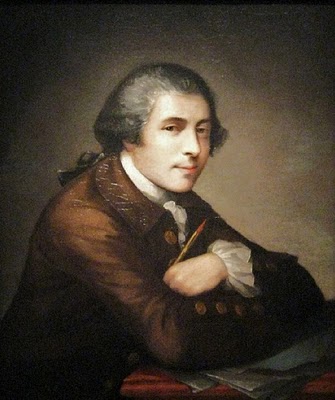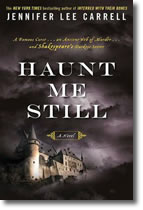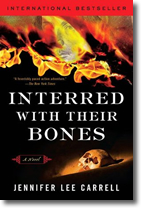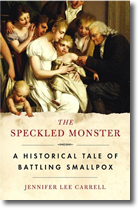Matthew Pratt, Self Portrait (1764)
National Portrait Gallery, Smithsonian Institution, Washington, DC
In colonial Boston, Zabdiel Boylston rides down a muddy street; his black slave Jack follows on a mule, packing a satchel full of the tools of Boylston’s trade: he’s a general surgeon and an apothecary, or pharmacist. He’s never been to college, but the townspeople call him “doctor” anyway, in honor of his skill. After years of practice, and before that, years of apprenticeship with his father, he’s the most trusted medical man in town. A recent arrival from Scotland, William Douglass, is beginning to protest, however: Dr. Douglass may be twelve years younger than Boylston, but after studying at no fewer than four European universities, he has earned a proper medical degree. His peacock pride is infuriated by the mere presence of this untrained competitor for his fees, and even more so by the trust the provincial fools of Boston put in him.
So far, Boylston has paid no mind to Douglass’s sneers: he cares little for tradition or titles. What he cares about are honest hard work and results.
That was before the recent outbreak of smallpox, however. Now, like Lady Mary, Boylston is hooted at and splattered intentionally with filth whenever he steps into the street. For fear of lynch mobs, his wife and friends beg him not to go out after dusk, but the stealthy knocks keep coming, followed by urgently whispered requests: will you come now, before it’s too late?
Always, he gives Jack the nod, puts on his coat, and goes out…
Boylston was a third-generation colonist who had grown up hunting, fishing, farming and doctoring on the fringes of a vast wilderness half the world away, in the western hamlet of Muddy River, Massachusetts. Now known as Brookline, his birthplace was tiny and provincial even by the standards of the booming frontier port where he would eventually make his home: Boston, then sandwiched between the sea and the seemingly endless American forest.
To Boylston, words were tools to be used sparingly. He had learned his profession not from books but from long practical apprenticeship with his physician father. In 1726, certainly at the behest of the Royal Society and possibly at the request of the Princess of Wales, he told his side of the story in An Historical Account of the Small-Pox Inoculated in New England, including his case notes for inoculations performed in Boston in 1721 and 1722. It is a deliberately dry format, careful and concise; even so, a wry wit shines through. Though capable of humor, he was for the most part laconic, stubbornly upright and independent – an early incarnation of the American frontier hero.
—from the Introduction to The Speckled Monster








